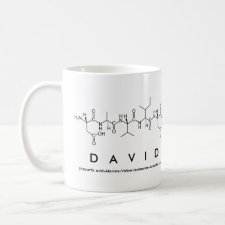
Authors: Spivak DA, Campbell JN
Article Title: Molecular imprinting in nanometer scale particles.
Publication date: 2001
Journal: Abstracts of Papers of the American Chemical Society
Volume: 221
Issue: (IEC)
Page numbers: 95.
Abstract: Molecularly imprinted polymers (MIP's) have shown to be useful in the areas of catalysis, molecular recognition, and separation. By controlling the size of the particles and forming MIP's on a nanometer scale we hypothesize that it should be possible to improve mass transfer kinetics, binding distribution, and binding capacity. The primary method of particle size control chosen is aqueous emulsion polymerization, which necessitated the use of covalent pre-polymer complex for imprinting. The effect of particle size on the binding properties is reported. Furthermore, it is anticipated that affinity chromatography techniques can be applied to the smaller particles to separate those with the highest binding affinities



Join the Society for Molecular Imprinting

New items RSS feed
Sign-up for e-mail updates:
Choose between receiving an occasional newsletter or more frequent e-mail alerts.
Click here to go to the sign-up page.
Is your name elemental or peptidic? Enter your name and find out by clicking either of the buttons below!
Other products you may like:
 MIPdatabase
MIPdatabase









